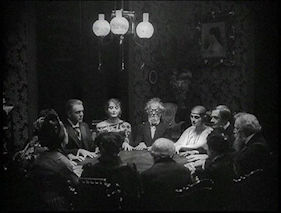

The future perfect tense is used in a way that should remind you of how
the past perfect tense is used. The main distinction, of course, is that the past perfect
tense is used with events that happened in the past time. The future perfect tense, on the other hand,
is used for events that will occur in the future. The following examples illustrate the differences
and similarities.
Monday, 8:40 AM: Ayane sang in the classroom.
Monday, 8:45 AM: Ryusei sang in the classroom.
We can use the past perfect tense to show which event happened first in the
past time as follows: Ayane had sung in the classroom before Ryusei
did.
Tuesday, 9:00 PM: Eleazar will sing in the shower.
Tuesday, 9:30 PM: Maria Jose will sing in the shower.
We can use the future perfect tense to show which event will
happen first in the future as follows: Eleazar will have sung in the
shower before Maria Jose does.
 It should be noted that when the events are dissimilar, the verb "does" is not used.
Look closely at the following examples.
It should be noted that when the events are dissimilar, the verb "does" is not used.
Look closely at the following examples.
▓ Eleazar will have sung in the shower for ten minutes before his
girlfriend finally covers her ears.
▓ Brad will have winked five times at Sakura before she slaps his face.
Let's take a careful look at how the future perfect tense is formed.
| Subject | auxiliary verb WILL | + | auxiliary verb HAVE | + | main verb |
| invariable | | invariable | | past participle |
| will | | have | | V3 |
| Joe | will | | have | | spoken |
As with the other perfectives, the Future Perfect uses a form of the
auxiliary HAVE and a past participle.
Present Perfect
The fat boy has shaken the tree. ("has" ==> PRESENT)
Past Perfect
Mr. Gordo had been there before. ("had" ==> PAST)
Future Perfect
Chubby Checker will have eaten everything by then. ("will have" ==> FUTURE)
Grammar Check-Up
Scrolling through the Christmas images, use the Future Perfect tense
to state what will happen in the future.

Home
 It should be noted that when the events are dissimilar, the verb "does" is not used.
Look closely at the following examples.
It should be noted that when the events are dissimilar, the verb "does" is not used.
Look closely at the following examples.














